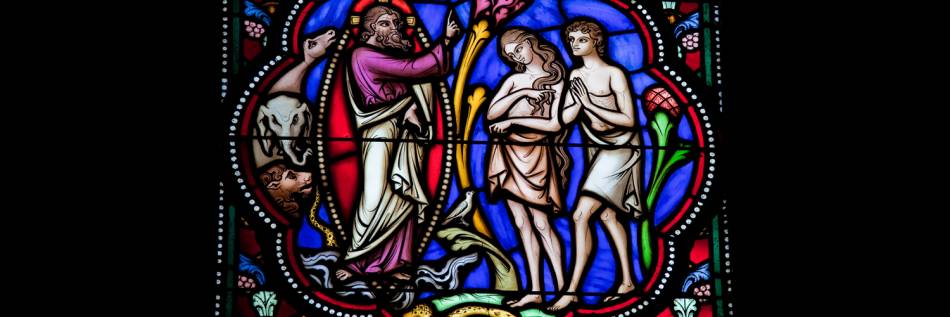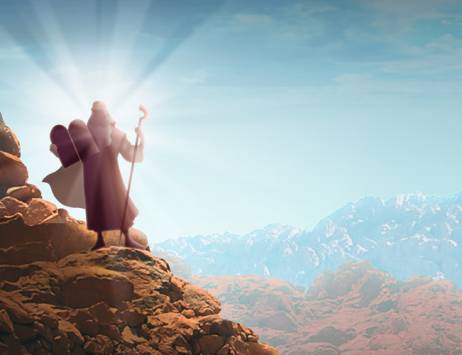Who Was Eve?
Eve was the second human being God created, and her origin is unique in the history of humankind. She wasn’t formed from the dust of the ground, as Adam was. But she wasn’t born, either, as every other human being was. Eve was created from a rib that God had removed from Adam.
With Adam, she lived naked and unashamed in the garden of Eden—until the day the serpent tempted her. Adam and Eve were allowed to eat from every tree in the garden, except one. They were forbidden to eat the fruit of the tree of the knowledge of good and evil.
The devil, in the guise of a serpent, tempted Eve to eat the forbidden fruit, and she did. Adam did too. According to Genesis 3:7, their eyes were opened and they realized that they were naked, so they covered themselves with fig leaves.
Shortly thereafter, when God walked through the garden, they hid from him—something they had never done before. God punished their sin by cursing the serpent, cursing Eve, and cursing Adam, and then he banished them from the garden.
Eve gave birth to three sons, who are named in Scripture (Cain, Abel, and Seth), as well as other children, who aren’t. We can assume that she mourned the death of Abel at Cain’s hands. Genesis 4:25 records that when she had another son, Seth, she took solace in him after Abel’s death. Beyond that, though, we know little about Eve’s life.
Where Does Eve Appear in the Bible?
The bulk of Eve’s story is contained in Genesis 2–3.
Why Was Eve Important?
Eve represented the grand finale of creation, as God concluded his six days of work by creating her. It must have been some finale. When Adam awoke and saw Eve for the first time, he was so overwhelmed that he composed the very first poem, right on the spot:
This is now bone of my bones
And flesh of my flesh;
She shall be called Woman,
Because she was taken out of man. (Genesis 2:23).
Eve is the mother of the entire human race. Every maternal family tree begins with her, and every person who ever lived is connected through her. She’s also the ultimate pioneer: the first woman, the first wife, the first mother, the first mother to lose a child, the first grandmother, and so on.
Eve was one of only three people who knew what it was like to be sinless and to enjoy pure fellowship with God. She was one of only two people to experience paradise. In the garden of Eden, she lived in harmony with the rest of creation, experiencing the world as God created it, before the curse of sin wreaked its havoc. She got a taste of perfection.
Eve was the first person to disobey God. First, she misrepresented his words in her conversation with the serpent. Second, she disobeyed his only command by eating the fruit from the tree of the knowledge of good and evil. Third, she gave the fruit to Adam to eat. As a result, sin entered the world, and the fellowship between God and his human creation was broken.
What Can We Learn from Eve?
The first takeaway from Eve’s story is that we are not defined by our failures. Eve experienced the dire consequences of her disobedience. Her world changed overnight. Her work, which had once brought her joy and fulfillment, became difficult and oppressive. She experienced the pains of childbirth. Yet we can assume that she persevered. She raised a family, and with Adam, she built a new life outside of Eden.
The second takeaway is that it is essential to know and understand God’s Word. The serpent began his temptation by asking, “Has God indeed said . . . ?” (Genesis 3:1). That was enough to plant a seed of doubt in Eve’s mind. The treacherous serpent exploited that momentary doubt and convinced Eve to disobey God.
This commentary is from the New King James Study Bible.
Interested in knowing more about the writers and characters in the Bible? Check out these articles:
Who Wrote the Book of Romans?
Who Wrote the Book of Joshua?
Who Wrote the Book of Job?
Who Was Moses?
###
With more than 2 million copies sold, it’s no secret that the NKJV Study Bible is a reliable guide for your journey into God’s Word. This Bible provides a complete resource for study, including thousands of notes, articles, extensive cross-references, and features contributed by top evangelical scholars.





